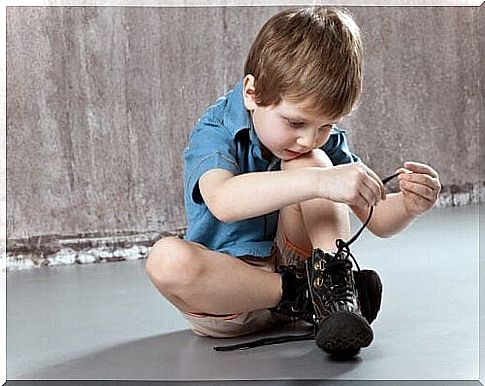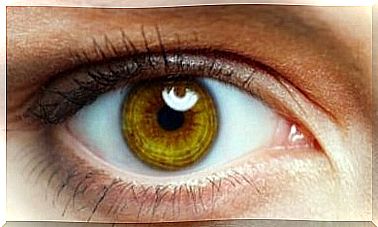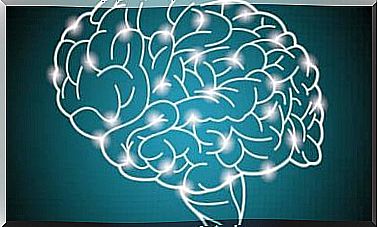Hyperactive Children: Consequence Of Trauma Or Childhood Stress

In hyperactive children, there may be sensitive realities. Sometimes, however, we simply address these behaviors with medication.
As obvious as it may seem, we do this without first understanding the factors that lead to certain behaviors. Some children suffer from stress. They come from broken homes or have attachment problems.
We want to start by stating that this is a very sensitive issue. It is a sensitive topic for healthcare professionals.
At the same time, it is complicated for the families with children who have been diagnosed with ADHD. First of all, there are many psychologists, psychiatrists and neurologists who believe that attention disorders with or without hyperactivity do not exist.
This behavioral syndrome represents a wide spectrum of manifestations. According to Murphy and Gordon (1998), it affects 2% to 5% of all children. It can manifest before the age of 17 years.
If not properly diagnosed and treated, there is a very high chance that these children could develop anxiety disorders or even depression as adults.
Since the 19th century we have been familiar with the early cases of hyperactive and impulsive children with attention problems.
British pediatrician Sir George Frederic Still (1868 – 1941) was the first person to describe this condition. To this day, clinical psychologists and psychiatrists continue to defend the existence of ADHD.
However, there is something they emphasize above all: the importance of a correct diagnosis.

Hyperactive children don’t always have ADHD
Some nervous children exhibit challenging, violent, and disruptive behavior at school. However, there are also children who are restless. These children are then unable to demonstrate their full cognitive potential. This is because classroom conditions are not adapted to their parenting needs.
So we have two very different realities here. We cannot classify them under the term ADHD in the same way. Not all students who are lazy, unruly, disruptive, or prone to tantrums fall into the same category. These children would benefit tremendously from a specific learning program adapted to their behavioral syndrome.
However, other children need other forms of help. In some cases, hyperactive children may have some kind of underlying trauma.
For example, it could be related to environments of abuse, chaos, or broken families. In these cases, adjustments to the curriculum or medication will not be able to help.
A famous study
Nicole Brown is a child psychiatrist who works at John Hopkins Hospital in Baltimore. Different kinds of media have published her special study for a very specific purpose. They wanted to create awareness of the need for more precise, sensitive and appropriate diagnoses.
At an annual meeting of the Pediatric Academic Societies, Dr. Brown presented the information she had gathered.
She mentioned that many children diagnosed with ADHD were not hyperactive. In fact, these children were overly vigilant and stressed. In other words, they showed signs of trauma.
In those cases, behavioral therapy and stimulants may not work. So these situations were more delicate. She also found that the causes of the hyperactivity in these children were nothing more than dysfunctional families or traumatic events that these children had suffered at some point.

The importance of a correct diagnosis
Doctors Marc Ferrer, Oscar Andión and Natalia Calvo also conducted an interesting study. Their aim was to distinguish between the symptomatology of trauma, borderline personality disorders and ADHD in adults.
We know that trauma can cause behaviors similar to hyperactivity. As the child grows up and matures, the effects of trauma are much more detrimental.
- It is therefore essential to identify these kinds of realities at an early stage.
- Absent-minded, impulsive, and nervous behavior are not always signs of ADHD. This is something teachers and anyone who works with children on a daily basis should know.
- Hyperactive children sometimes experience adversity, family suffering and childhood stress.
- So good professionals, child psychiatrists and clinical psychologists know that they also need to examine a child’s family and the complex environment in which they live.

We should also point out another important aspect. Parents of children who have been correctly diagnosed with ADHD know that they are not responsible for this syndrome.
However, they have a difficult process ahead of them. With the help of the school, they must meet the specific needs of the hyperactive child.









